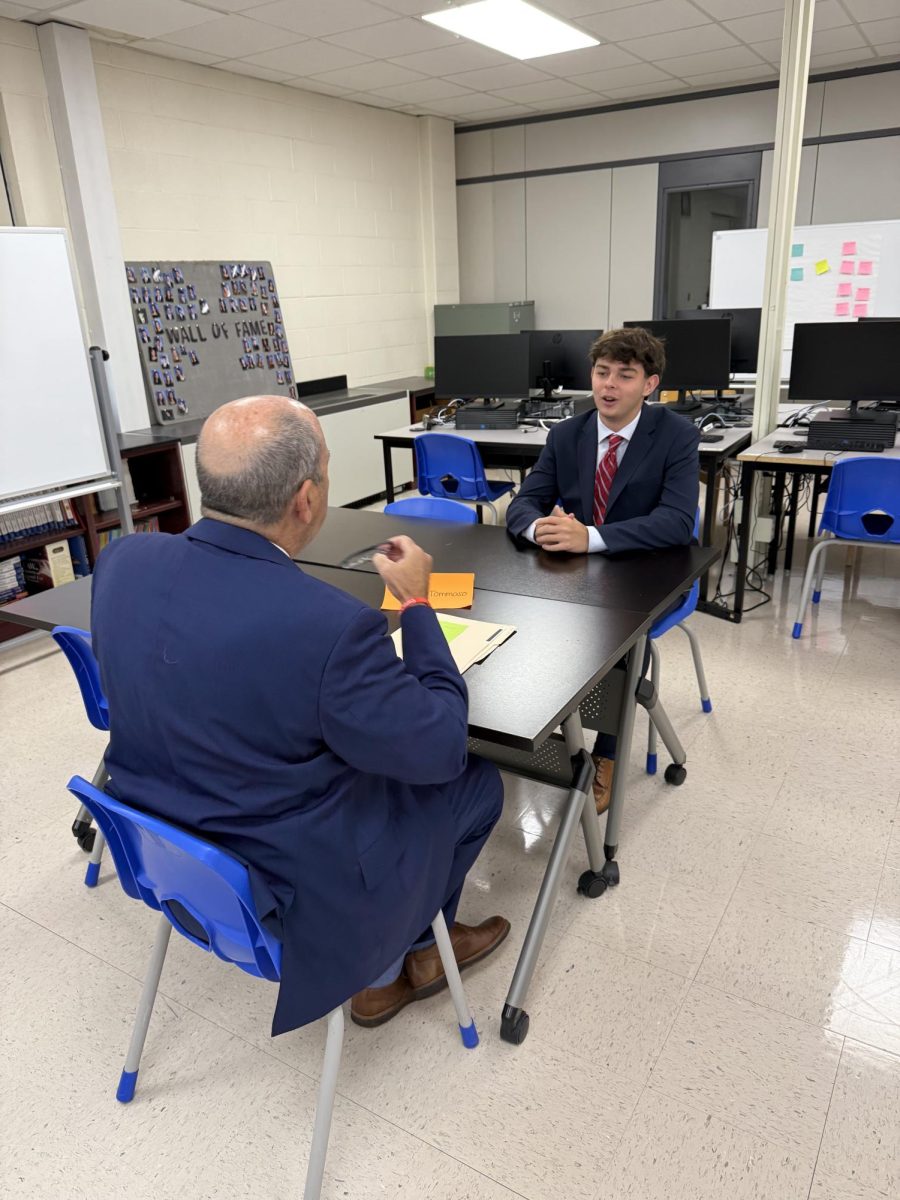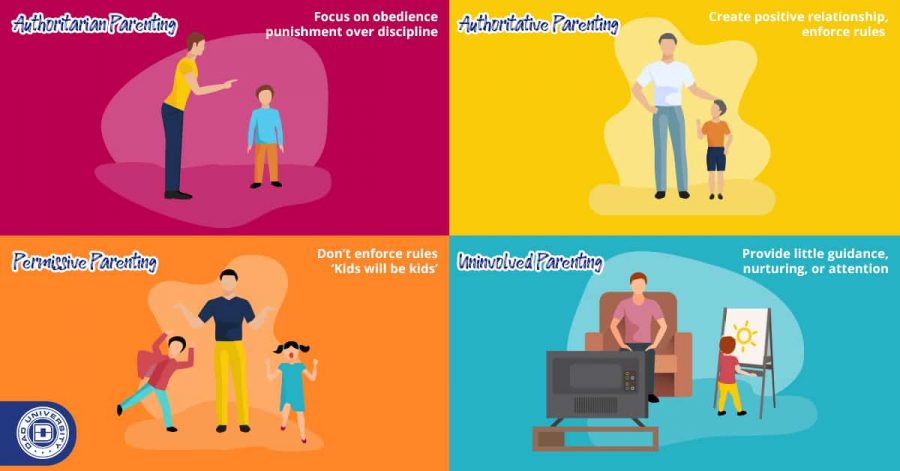“Parenting Styles: A Teen’s Perspective”
May 27, 2021
Oftentimes, different parenting styles are judged by other parents or adults while out on the playground or behind the scenes at Pinterest perfect birthday parties. Ultimately, most parents just do what they think is best for their child and what will benefit their child in the long run. Unfortunately, there is no for-sure right answer about the “best parenting style” because that would be too easy, but there are some methods that have been proven to be effective. To get some essential background information on parents in the community, I asked some teachers around the school with teens about their parenting styles and what works for them. Here’s what they said about their experience of being a parent of a teenager:
- “Its very scary-all of a sudden they turn into this person who doesn’t want/need to be held or fed anymore, they can do it themselves.”
- “Its hard at times but it is also super rewarding to see the people that they become.”
- “It’s so hard to know how to discipline because I know I did that same thing, if not, worse!”
Most parents want their children to succeed and excel academically and socially. They try to make this happen by doing what they think is best, but sometimes that can turn into a parent overseeing a little too closely and ultimately making all the decisions. Although parents are almost always right, the child needs to learn that for themselves and cannot be kept in a box. Nowadays it is so easy to see what your child is doing at all times of the day with apps such as Life360 and Find My Friends. These apps are great to have for safety reasons and many other circumstances, but parents using these apps to track their teenage children constantly can make the child feel like they are trapped and being watched at all times. Many people think that strict automatically means behaved kids and good parenting, but strict parents often just make sneaky kids! Kids are bound to be kids and they are going to do things that parents may not approve of; just like the parents did when they were kids.
Knowing this, the goal should be to be involved enough in your child’s life to where they can be honest with you and come to you for support, no matter what the case is. We live and learn things and it is important to go through that tough stage in life. I am not saying that you should let your kids do whatever they want or that kids should be in charge of everything they do because that would be a recipe for disaster. I think that there can be a balance where the child is not in control but can be involved in decision making so that they know you wants and expectations. The hardest part of your child growing up is that they become their own person and they develop their own identity. This can also be the most rewarding. When becoming a teenager, it is inevitable and also essential for a child to start making decisions for themselves and thinking for themselves. Unfortunately, a lot of these choices may not be the ones that you want them to make or ones that you think they should be making. But if you can communicate with them and allow them to have some input on decision making, it can build a trust factor and they will know your expectations and be less argumentative. They will also, naturally, want you to know things and want your advice.
Some of you may be reading this and disagreeing with me, saying, “Parents should not be friends with their children.” I feel that it is a very one sided way of thinking. Friends are people who you can trust and confide in and go to when you need something or just to have a good time. Why would you not want your child to think of you that way as well? Saying that a parent cannot be friends with their child is not a realistic statement and I think that it will only drive your child away from telling you anything at all! You can still establish an authoritative role over your child and have that bond with them at the same time and it is very important to understand and acquire that balance because it will be beneficial for the child. The child is not likely to feel alone. This will prevent them from falling into a depression and allow them to feel loved and respected by their parents. In this writing, as a teenager myself, I hoped to shed some light on some ways of building a strong relationship with your child because I find it the most effective way of parenting.


























